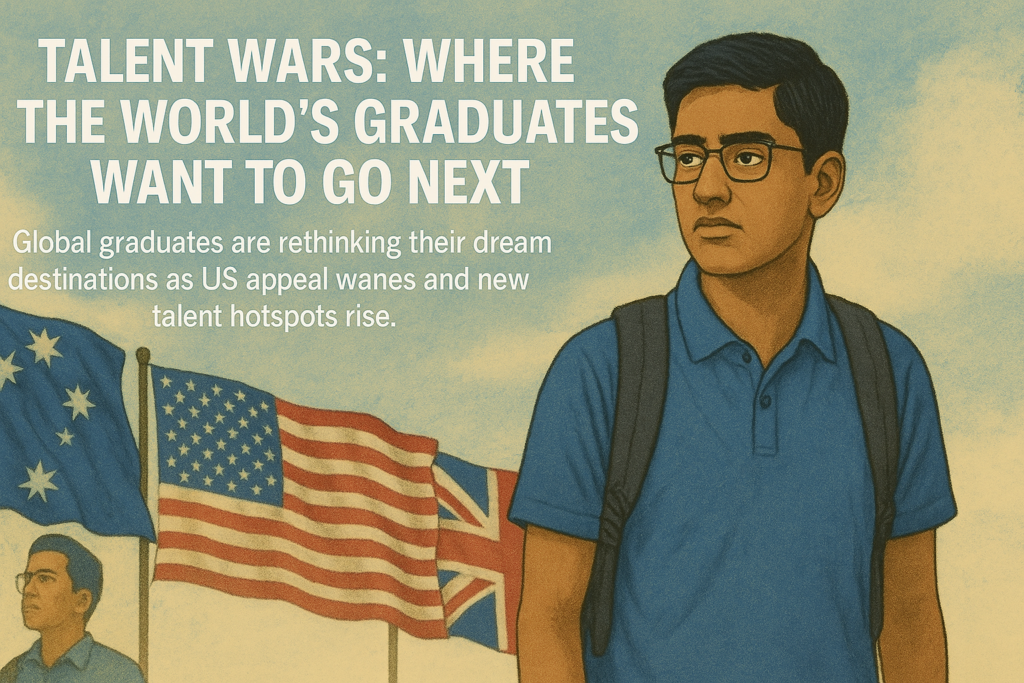
For years, the United States has been the top choice for ambitious graduates seeking opportunity abroad. But the global landscape is shifting, with new data from The Economist’s Footloose Index — an annual ranking based on Gallup World Poll surveys — showing that the American dream is losing its shine for many of the world’s most talented young people.
Prompted by the special coverage of higher education-job market equations in these times, we are putting out a six-story series on the crisis that the American academic-employment axis is facing today, because if it’s America today, it will be global tomorrow.
The changing rankings
The Footloose Index, compiled by The Economist, ranks 74 countries by their appeal to graduates, using responses from more than 150,000 degree-holders worldwide. While the US and Australia remain highly attractive to skilled workers from China, and Canada to those from Mexico, the overall picture is changing.
In 2024, international student applications to US universities fell by over 10%, while countries like Canada, Australia, and Germany saw increases of 8–12% in the same period.
Canada, in particular, has consistently ranked between first and third as the most desirable destination for graduates since 2010, according to The Economist’s analysis of Gallup data.
Why the shift?
Recent US policies — tightening student visa requirements and slashing research funding — are eroding America’s historic appeal. The Economist notes that highly skilled migrants now face long waits and frequent rejections for US work visas, even for well-paid roles.
This bureaucratic uncertainty is pushing graduates to consider alternative destinations with friendlier immigration policies and robust research funding.
Meanwhile, countries like Portugal, Italy, and Spain have climbed the rankings, thanks to targeted policies for remote workers and skilled migrants.
Portugal, for example, has jumped from 24th to 13th in total rankings since 2010, and now sits eighth in per-graduate attractiveness, according to The Economist’s Footloose Index.
The new talent hotspots
As the US grapples with a “poorly functioning immigration system,” as described by The Economist, other countries are capitalising on the opportunity to attract global talent.
Canada, Australia, and Germany are not only offering more accessible visas but also investing in research and higher education, making them increasingly popular among the world’s mobile, educated workforce.
The result is a more competitive global market for talent, with graduates weighing not just job prospects, but also quality of life, political stability, and opportunities for permanent residency.
In nutshell
The Footloose Index reveals a world in flux: while the US remains a major draw, its dominance is no longer assured.
For graduates weighing their futures, the map of opportunity is being redrawn — with Canada, Australia, and parts of Europe now leading the way.
Attribution: All facts, figures, and analysis in this article are drawn from The Economist’s Footloose Index and Gallup World Poll data, alongside reporting from The Economist and supporting sources.
Note: Other parts of the series to follow




5 thoughts on “Talent wars: Where the world’s graduates want to go next”